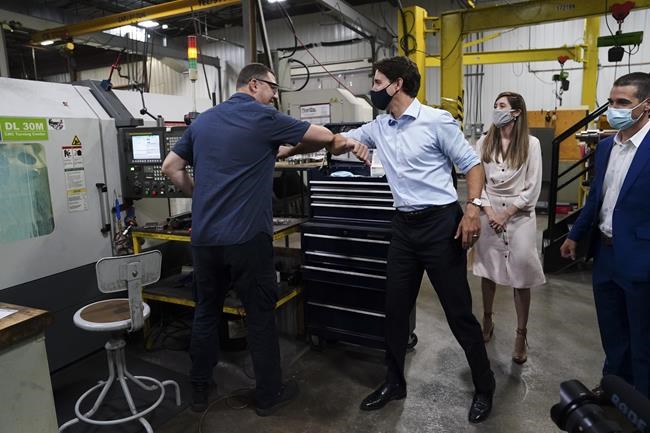CRTC now accepting registrations for parties, groups using robocalls
Advertisement
Read this article for free:
or
Already have an account? Log in here »
To continue reading, please subscribe:
Monthly Digital Subscription
$0 for the first 4 weeks*
- Enjoy unlimited reading on winnipegfreepress.com
- Read the E-Edition, our digital replica newspaper
- Access News Break, our award-winning app
- Play interactive puzzles
*No charge for 4 weeks then price increases to the regular rate of $19.95 plus GST every four weeks. Offer available to new and qualified returning subscribers only. Cancel any time.
Monthly Digital Subscription
$4.99/week*
- Enjoy unlimited reading on winnipegfreepress.com
- Read the E-Edition, our digital replica newspaper
- Access News Break, our award-winning app
- Play interactive puzzles
*Billed as $19.95 plus GST every four weeks. Cancel any time.
To continue reading, please subscribe:
Add Free Press access to your Brandon Sun subscription for only an additional
$1 for the first 4 weeks*
*Your next subscription payment will increase by $1.00 and you will be charged $16.99 plus GST for four weeks. After four weeks, your payment will increase to $23.99 plus GST every four weeks.
Read unlimited articles for free today:
or
Already have an account? Log in here »
Hey there, time traveller!
This article was published 16/08/2021 (1609 days ago), so information in it may no longer be current.
OTTAWA – The Canadian Radio-television and Telecommunications Commission says political parties and candidates can now use its voter contact registry, established to protect Canadians from “rogue and misleading telephone calls” during federal elections.
It’s now accepting registrations from parties, candidates and groups using a calling service provider to contact voters during the election, and they must register with the CRTC within 48 hours of making their first call.
The requirement also applies to anyone doing their own robocalls, but doesn’t apply for groups using their own services to make live calls.

People who break the rules can be fined up to $1,500 and corporations can be fined up to $15,000.
The registry was established following a flood of complaints about robocalls in the 2011 election, including calls claiming to be from Elections Canada telling people their poll location had changed.
A former junior Conservative campaign staffer was the lone person charged in the scandal and in 2014 was convicted under the Canada Elections Act of wilfully preventing or endeavouring to prevent an elector from voting.
This report by The Canadian Press was first published Aug. 16, 2021.


















